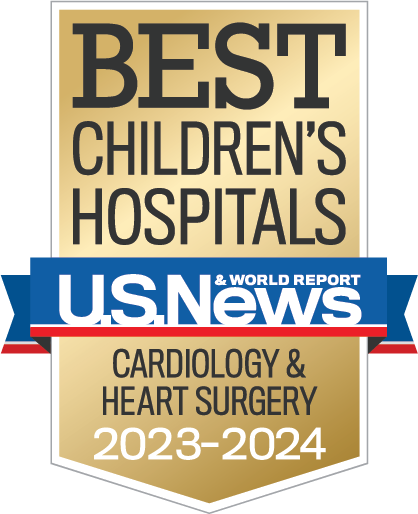- Doctors & Departments
-
Conditions & Advice
- Overview
- Conditions and Symptoms
- Symptom Checker
- Parent Resources
- The Connection Journey
- Calm A Crying Baby
- Sports Articles
- Dosage Tables
- Baby Guide
-
Your Visit
- Overview
- Prepare for Your Visit
- Your Overnight Stay
- Send a Cheer Card
- Family and Patient Resources
- Patient Cost Estimate
- Insurance and Financial Resources
- Online Bill Pay
- Medical Records
- Policies and Procedures
- We Ask Because We Care
Click to find the locations nearest youFind locations by region
See all locations -
Community
- Overview
- Addressing the Youth Mental Health Crisis
- Calendar of Events
- Child Health Advocacy
- Community Health
- Community Partners
- Corporate Relations
- Global Health
- Patient Advocacy
- Patient Stories
- Pediatric Affiliations
- Support Children’s Colorado
- Specialty Outreach Clinics
Your Support Matters
Upcoming Events
Mental Health Town Hall
Tuesday, April 23, 2024Join Children’s Hospital Colorado pediatric experts for a virtual...
-
Research & Innovation
- Overview
- Clinical Trials
- Q: Pediatric Health Advances
- Discoveries and Milestones
- Training and Internships
- Academic Affiliation
- Investigator Resources
- Funding Opportunities
- Center For Innovation
- Support Our Research
- Research Areas

It starts with a Q:
For the latest cutting-edge research, innovative collaborations and remarkable discoveries in child health, read stories from across all our areas of study in Q: Advances and Answers in Pediatric Health.


Heart
Genetic Syndromes in Children
We specialize in the big things, the small things and everything in between.

Genetic syndromes and the link to heart defects in children
Most of the heart conditions associated with the genetic disorders outlined below are treatable with surgery and/or medication. Genetic syndromes with related heart conditions include:
Down syndrome
Children with Down syndrome (also known as Trisomy 21) have an extra copy of their 21st chromosome. About half of children with Down syndrome also have a congenital heart condition –– the most common being atrial-ventricular septal defects, ventricular septal defects and atrial septal defects.
Marfan syndrome
Marfan syndrome is known as a connective tissue disorder. Connective tissue holds the cells of the body together, much like mortar holds bricks together in a building. Children with Marfan syndrome are born with a defect in the gene Fibrillin-1. This gene is involved in making connective tissue strong and flexible. Many people with Marfan syndrome have a weakening of the walls of the aorta (also called aneurysm), the main blood vessel that carries blood away from the heart to the rest of the body. If untreated, the heart valve can leak, or the aorta can tear or rupture: This is called dissection, which is a life-threatening and often fatal complication. In some cases, children with Marfan syndrome have a leaky heart valve that allows blood to leak back into the heart, which causes the heart to weaken and not pump enough blood forward.
Connective tissue disorders and aortopathy syndromes
There are several conditions similar to Marfan syndrome because they also can have aortic enlargement or an aneurysm. These include:
- Bicuspid aortic valve with aortopathy
- Loeys-Dietz syndrome
- Vascular Ehlers Danlos syndrome
- Shprintzen-Goldberg syndrome
- ACTA2-associated multisystemic smooth muscle dysfunction syndrome
- Kyphoscoliotic Ehlers-Danlos syndrome
Noonan syndrome
Noonan syndrome is one of several related genetic conditions known as RASopathies. These conditions are grouped together because they are all caused by changes in genes that use the Ras/mitogen-activated protein kinase (Ras/MAPK) pathway to send signals. This pathway transmits messages from outside of a cell into the cell to tell it how to grow and develop. In addition to Noonan syndrome, other RASopathies include Noonan syndrome with multiple lentigines, cardiofaciocutaneous syndrome, Costello syndrome and others. RASopathies can affect a child’s heart, including a risk for certain types of congenital heart disease, such as pulmonary valve stenosis and hypertrophic cardiomyopathy.
Turner syndrome
Turner syndrome occurs when one of the two X sex chromosomes is missing or partially missing. Most individuals with Turner syndrome are female. Up to half of children born with Turner syndrome have heart problems, the most common being bicuspid aortic valve, coarctation of the aorta, partial anomalous pulmonary venous return (PAPVR), mitral valve disease and hypoplastic left heart syndrome. Girls with Turner syndrome have a lifelong risk of high blood pressure, high cholesterol and lipids, and aortic aneurysm and dissection, so ongoing heart care from childhood through adulthood is recommended. Learn about the multidisciplinary approach we take to treatment for Turner syndrome in our Turner Syndrome Clinic.
22q11.2 deletion syndrome
22q11.2 deletion syndrome, or 22q, is a genetic condition caused by a missing piece of chromosome 22. Historically, this syndrome has also been known as DiGeorge syndrome, velo cardio facial syndrome and Shprintzen syndrome. The majority of children with 22q are born with a heart defect, and common types include Tetralogy of Fallot, truncus arteriosus and interrupted aortic arch. It’s strongly recommended that all babies with these heart defects be tested for 22q. Children with 22q are at risk for other problems including immune system deficiency, low calcium, gastrointestinal reflux and learning differences.
Williams syndrome
Williams syndrome is caused by a missing piece of chromosome 7. Children with Williams syndrome typically have distinctive facial features and a very social personality, as well as a narrowing of the large blood vessel that carries blood from the heart to the rest of the body, which can cause heart and blood vessel problems.
Elastin arteriopathy
Some individuals may not have a multi-gene deletion on chromosome 7 but have a change within the ELN gene. This can cause cardiac and vascular features similar to Williams syndrome, but it typically does not result in the full spectrum of physical, developmental and cognitive characteristics associated with the syndrome.
Alagille syndrome
Alagille syndrome is a multisystem disorder that usually impacts the heart, liver and eyes. The heart disease it can cause often involves the pulmonary arteries. Alagille syndrome is generally caused by a genetic change in one of two genes: Jagged1 or Notch 2.
Hereditary hemorrhagic telangiectasia (HHT)
Hereditary hemorrhagic telangiectasia (HHT) is a genetic disorder associated with abnormal connections of the blood vessels, called arteriovenous malformations (AVMs), which can be present in the lungs, brain, liver or gastrointestinal tract. People with HHT often have significant nosebleeds and can have red spots on their skin, lips and tongue.
Tuberous sclerosis complex (TSC)
Tuberous sclerosis complex (TSC) involves abnormal growth of the skin, brain, heart, kidneys, eyes and lungs. At least half of patients with TSC will have benign tumors that may require surgery for removal, but the tumors often decrease in size or disappear as the child matures.
Congential heart disease with underlying genetic causes
Congenital heart disease (CHD) is the most common birth defect in humans. It is well recognized that many types of congenital heart disease can run in families, and that parents who have a child with CHD could be at risk of having this recur in another pregnancy/child. With advances in genetic testing and genomics we are starting to understand what causes CHD in some children. This information can help parents and individuals with CHD understand their risk for recurrence, but can also allow more individualized care and present opportunities for personalized medicine.
These are a few examples of genes that are associated with CHD when a pathogenic variant is present:
- NKX2-5
- Can cause ASD, VSD, heart block, left ventricle noncompaction, Tetralogy of Fallot, hypoplastic left heart syndrome
- NOTCH1
- Can cause bicuspid aortic valve, coarctation of aorta, hypoplastic left heart syndrome
- GATA6
- Can cause Tetralogy of Fallot, interrupted aortic arch, truncus arteriosus, ASD, VSD
- DNAH5
- Can cause heterotaxy syndrome with complex CHD
Cardiomyopathies
Many individuals with cardiac muscle disease (called cardiomyopathies) have an underlying genetic cause for their presentation. There are several types of cardiomyopathies, including:
- Hypertrophic cardiomyopathy
- Abnormally thick heart muscle (myocardium)
- Dilated cardiomyopathy
- Enlarged and weakened left ventricle, the heart’s primary pumping chamber
- Restrictive cardiomyopathy
- Rigid walls of the heart’s ventricles (lower chambers), which impairs function and results in reduced blood flow from the heart to the body
- Noncompaction cardiomyopathy
- Muscle tissue in the left ventricle (the heart’s main pumping chamber) doesn’t develop correctly, disrupting the ability to pump blood effectively
- Arrhythmogenic cardiomyopathy
- Heart muscle replaced by fatty and fibrous tissue, disrupting the heart’s electrical system and causing irregular heart rhythms
- Genetic syndromes known to have risk for cardiomyopathy include Noonan syndrome, Barth syndrome, muscular dystrophies (e.g., Duchenne, Becker, Emery-Dreifuss, Limb Girdle, Myotonic dystrophy Friedrich’s ataxia and myofibrillar myopathy
Arrhythmias
Many individuals with heart arrhythmias (irregular heartbeats) have an underlying genetic cause for their condition. There are several known inherited arrhythmias, including:
- Long QT syndrome
- Catecholaminergic polymorphic ventricular tachycardia
- Brugada syndrome
Pulmonary hypertension (PH)
Pulmonary hypertension (PH), when blood pressure from the heart to lungs is too high, is often associated with an underlying genetic cause. Therefore, we offer testing to our patients with PH who do not have a clear (non-genetic) reason for their presentation.
The symptoms of heart disease in infants with genetic disorders are generally the same as in heart conditions that are not caused genetically.
In genetic disorders, symptoms can include:
- Cyanosis: a bluish tint to the skin Shortness of breath
- Trouble feeding and poor weight gain
- Excessive sweatiness
- Fatigue or lethargy
- Rapid heartbeat or heart murmur
Talk to your doctor if your child has a genetic condition, signs of any of these symptoms or other heart concerns.
Because of the relationship between these genetic disorders and certain heart conditions, your doctor will monitor your child's heart closely. If your doctor hears a heart murmur (an extra or abnormal sound of your child's heartbeat) or discovers an abnormal blood pressure or pulse, they will do more tests to investigate.
Pediatric cardiologists will likely perform further tests to identify if your child has a heart condition. Some common heart tests include:
- CT scan and MRI
- Cardiac catheterization
- Chest X-ray
- EKG
- Electrocardiogram, Holter monitor and event recorder
- Electrophysiology study
- Exercise study
- Lab tests (e.g., blood, sweat and glucose tolerance)
- Tissue biopsies
- Echocardiogram
Our pediatric cardiologists, in collaboration with our geneticists and other pediatric subspecialists, have the medical and surgical expertise to treat and repair the congenital heart defects associated with genetic syndromes.
At Children's Colorado we have multi-specialty programs for many of the genetic syndromes commonly linked to heart problems, including:
- Sie Center for Down Syndrome
- 22q11.2 Deletion Syndrome Multidisciplinary Clinic
- Turner Syndrome Multidisciplinary Clinic
- Noonan syndrome and RASopathies Multidisciplinary Clinic
- Hereditary Hemorrhagic Telangiectasia Multidisciplinary Clinic
Interventional cardiac catheterization
In some cases, our interventional cardiologists can repair your child's heart condition with cardiac catheterization. This is a minimally invasive procedure where a catheter is threaded through the veins across a stenosis (narrowed blood vessel) or septal defect (hole). It is then used to expand the stenosis or patch the hole. After a cardiac catheterization, children usually stay in the hospital overnight and are asked to take it easy for the next week.
Watch a video about what to expect for your child's heart catheterization.
Open-heart surgery
Other kinds of heart defects require open-heart surgery to repair. A cardiovascular surgeon will surgically enlarge the stenosis (narrowed blood vessel), stitch the septal hole together or patch the hole with surgical material. In this case, your child will typically stay in the hospital for a few days while the incision heals.
Learn why Children's Colorado is the best place for your child's heart surgery.
See why our outcomes make us one of the top heart hospitals
See why our outcomes make us one of the top heart hospitalsIf you want to learn more about genetically linked heart conditions, visit:
Learn why parents choose our nationally-ranked Heart Institute.
Next steps
-
Would you like to learn more about us?
Learn more about the Heart Institute -
Do you have questions about your child’s condition?
720-777-6820 -
Are you ready to schedule an appointment?
Schedule an appointment

Compassionate care, wherever you are
We’re here when you need us. Telehealth appointments are available across every specialty, so you can get the high-quality care we’ve always offered from the comfort, privacy and convenience of home.
See if telehealth is right for you
Get to know our pediatric experts.

Elizabeth Yeung, MD
Adult Congenital Heart Disease, Cardiology - Pediatric, Pediatrics

Camila Londono-Obregon, MD
Cardiology, Cardiology - Pediatric, Pediatrics

Richard Friesen, MD
Cardiology - Pediatric, Pediatrics

Robert Bishop, MD
Cardiology - Pediatric, Critical Care - Pediatric, Pediatrics
Patient ratings and reviews are not available Why?



 720-777-0123
720-777-0123



